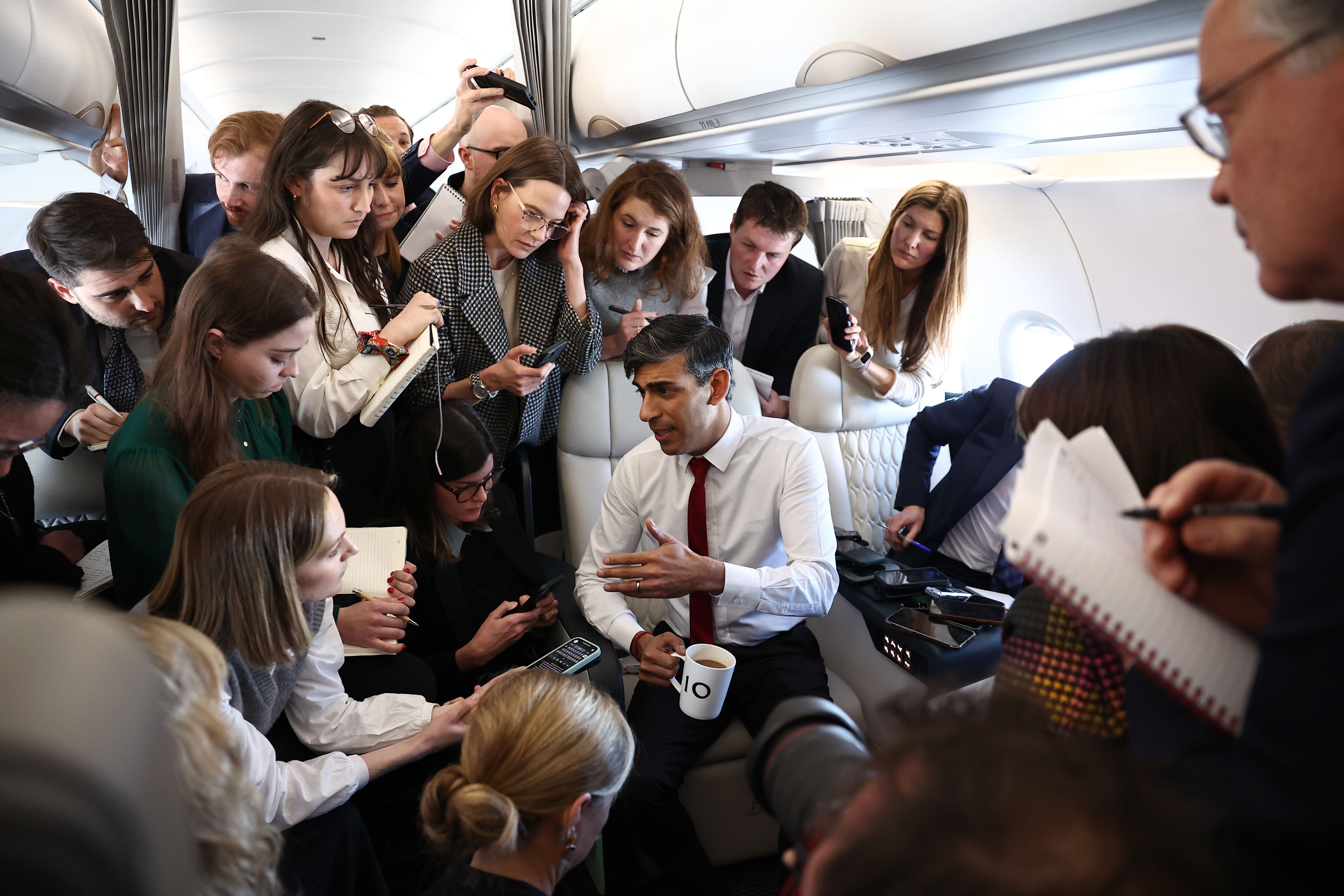Editors say AI can help journalists but warn of challenges for media industry
A panel at the Society of Editors Conference agreed that artificial intelligence could not replace the value of journalists reporting from the ground.

Your support helps us to tell the story
From reproductive rights to climate change to Big Tech, The Independent is on the ground when the story is developing. Whether it's investigating the financials of Elon Musk's pro-Trump PAC or producing our latest documentary, 'The A Word', which shines a light on the American women fighting for reproductive rights, we know how important it is to parse out the facts from the messaging.
At such a critical moment in US history, we need reporters on the ground. Your donation allows us to keep sending journalists to speak to both sides of the story.
The Independent is trusted by Americans across the entire political spectrum. And unlike many other quality news outlets, we choose not to lock Americans out of our reporting and analysis with paywalls. We believe quality journalism should be available to everyone, paid for by those who can afford it.
Your support makes all the difference.Artificial intelligence (AI) could be useful for journalists in assisting with their day-to-day tasks, but could also be “problematic” for the wider press, an industry conference has heard.
A panel of editors discussed the rise of AI and the opportunities and problems it could present for the media industry at the Society of Editors Conference on Tuesday.
The Financial Times announced in March it was launching its first generative AI tool for subscribers.
The experimental feature will allow users to ask questions and receive a response using content published by the newspaper over the past two decades.
Fundamentally, we will still go out and cover stories and hopefully be the first to break the news, and that’s our DNA
However, Tami Hoffman, the director of news distribution and commercial innovation at ITN, acknowledged the problems such tools could present when companies outside of the media industry ran them.
“I think it’s going to be really problematic for us all,” she said.
“It’s not simply that they would use our copyright to build their models, but they’re actually going to develop their relationship with audiences by using our material without attribution and without driving traffic back to us.”
Ms Hoffman said that generative AI search models could disrupt relationships between media companies and their audiences. There could also be reputational issues if the search engines do not correctly attribute their sources.
Pete Clifton, the PA news agency’s editor-in-chief, said AI was a useful tool for journalists and presented opportunities for the industry if it was properly researched and implemented.
“I think that as long as we take time to explain to our team what’s possible, work together on the things that are possible, talk about the successes, reflect on the things that don’t work, talk to some of our customers about some of the things we might be able to do together using it, I do not think that generative AI is going to change what PA does fundamentally,” he said.
“Fundamentally, we will still go out and cover stories and hopefully be the first to break the news, and that’s our DNA. We go to the press conferences, we hold people to account, and that will be – as far as I can see – what we do, and what is at the heart of what we do.
“We will still go out and find verified information that we share with people and there is value to that role that we play – and I think that’s the message I’ll convey to my team, and what we will do is find ways that AI can help to do that more effectively.”
Blathnaid Healy, an executive news editor at BBC News, said an increasingly digital world meant audiences and readers were consuming their news in a range of different ways, which posed challenges for media companies.
“Consumers are changing the way that they search. They’re moving to TikTok and Instagram and other places to find the information that they are looking for,” she said.
“So we are dealing with what is quite a fragmented digital audiences picture which used to be quite straightforward.
“Now we are dealing with multiple touchpoints and I think the question for all of us is how do you keep audience relationships, how do you keep that sense of brand, what you are and how you’re differentiated?”
She said the rise of AI was “the next chapter in a long and continuous digital transformation”, and added that media organisations “have to be very careful and learn a lot of lessons from how we previously approached the other parts of the digital transformation to understand what it can do and what it can’t”.
The panel was in agreement that AI could not replace the value of journalists reporting from the ground, but that it could be used to assist with production, administrative and verification tasks.
Jody Doherty-Cove, head of editorial AI at Newsquest, emphasised its importance for local media publications. Newsquest now employs AI-supported reporters who use ChatGPT to publish AI-assisted articles.
Mr Doherty-Cove said the intelligence tool drafted stories based on “trusted information”, which allowed other reporters to have more time to go out and work on investigative on-the-ground stories.